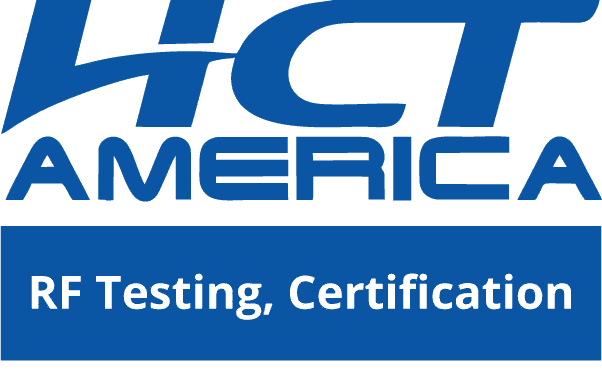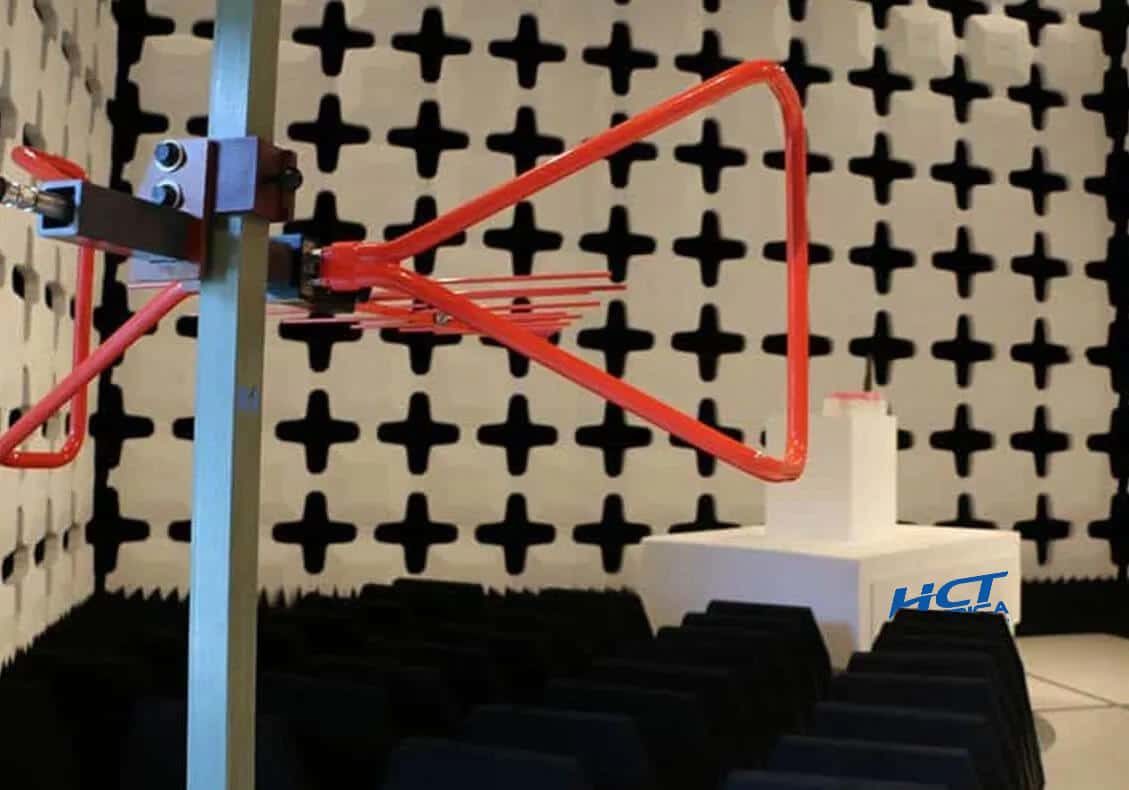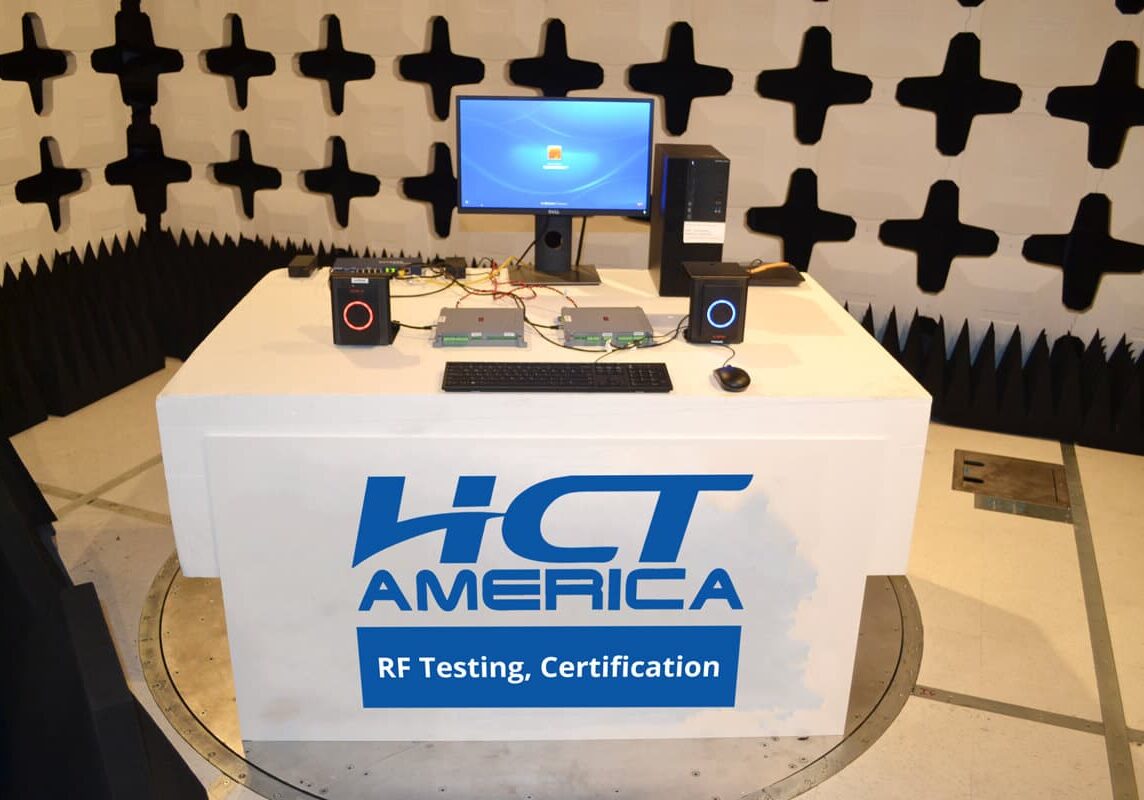EMC Testing
CE Mark
//
All electric devices or installations influence each other when interconnected or close to each other, e.g. interference between TV sets, GSM handsets, radios, and nearby washing machine or electrical power lines. The purpose of electromagnetic compatibility (EMC) is to keep all those side effects under reasonable control. EMC designates all the existing and future techniques and technologies for reducing disturbance and enhancing immunity.
The Electromagnetic Compatibility (EMC) Directive 2014/30/EU ensures that electrical and electronic equipment does not generate, or is not affected by, electromagnetic disturbance.
The EMC Directive limits electromagnetic emissions from equipment to ensure that, when used as intended, such equipment does not disturb radio and telecommunication, as well as other equipment. The Directive also governs the immunity of such equipment to interference and seeks to ensure that this equipment is not disturbed by radio emissions when used as intended.
The main objectives of the directives are to regulate the compatibility of equipment regarding EMC:
- Equipment (apparatus and fixed installations) needs to comply with EMC requirements when it is placed on the market and/or taken into service
- The application of good engineering practice is required for fixed installations, with the possibility that competent authorities of Member States may impose measures in instances of non-compliance.
| IEC 61000-3-2; EN 61000-3-2 | Harmonics |
| IEC 61000-3-3; EN 61000-3-3 | Flicker |
| IEC 61000-6-3; EN 61000-6-3 IEC 61000-6-4; EN 61000-6-4 |
Generic Emissions ITE/Industrial |
| IEC 61000-4-2; EN 61000-4-2 | Electrostatic Discharge |
| IEC 61000-6-3; EN 61000-6-3 | Radio Frequency |
| IEC 61000-4-4; EN 61000-4-4 | Electrical Fast Transient |
| IEC 61000-4-5; EN 61000-4-5 | Surge |
| IEC 61000-4-6; EN 61000-4-6 | Conducted Immunity |
| IEC 61000-4-8; EN 61000-4-8 | Magnetic Field |
| EN 61000-6-1; EN 61000-6-2 CISPR 24; EN 55024 |
Generic Immunity ITE |
| IEC 61000-4-11; EN 61000-4-11 | Voltage Dips/Variations |
2004/30/EU eliminates the requirement for Competent Body review and approval for family-grouped products, or for products within the Generic/Product Specific Standards, for which an alternate test procedure is required.
Military & Defense Aerospace Testing
//
HCT America conducts Military Electromagnetic Compatibility (EMC) testing and comprehensive test plan development, including Design Control Plans for Military and Avionics EMC testing. We offer military conducted susceptibility testing, radiated susceptibility testing, and conducted and radiated emission testing. Other types of military testing include receiver disturbance and sensitivity testing and measurement.
HCT America provides Military and Defense Aerospace EMC testing to the following standards:
| RTCA DO-160D/E/F | RTCA DO-160D/E/F is published by RTCA, Inc.; manufacturers of commercial avionics equipment selling products in the United States, Europe, and around the globe must meet RTCA requirements |
| MIL-STD-461C/D/E/F | MIL-STD-461C/D/E/F establishes the design requirements for the control of the electromagnetic emission and susceptibility characteristics of equipment and subsystems used by agencies of the U.S. Department of Defense |
| EUROCAE/ED-14D | EUROCAE/ED-14D is the European Union version of RTCA DO-160D |
| Def-Stan 59-41 | Def-Stan 59-41 is the United Kingdom's Ministry of Defense EMC standard, similar to MIL-STD-461 |

Frequently Asked Questions
Automotive EMC testing checks the electromagnetic compatibility for the vehicle as well as all the components. It is crucial to monitor every aspect of the vehicle and determine whether any are generating electromagnetic interference (EMI). The typical car dashboard is now filled with active components that must operate without causing disruption.
EMC Testing is a long-term investment. It is mandatory for certain products, and successful results allow manufacturers and importers to sell their product in multiple markets. The testing also allows manufacturers to improve the quality of their equipment and succeed in a competitive market.
Choosing the right EMC testing lab can save you a lot of hassle down the line. It can help you get your products to market quicker and ensures that all relevant compliance standards have been met. Remember, the key points to take away when choosing an EMC test lab are:
You should opt for an accredited service provider that can provide you with the relevant technical documentation and certifications
They should offer the right level of technical expertise and experience
They need to provide the right kinds of test and services pertinent to your product(s)
They should have the required equipment and facilities available – so check what these are
You want a lab that is conveniently located and offers a turnaround time that fits with your timetable
Comply with EMC directive standards
EMC testing is essential in ensuring that devices in electromagnetic environments work. Furthermore, EMC compliance certifications are mandatory in the majority of markets around the world, including the US, Europe, China, Australia, and New Zealand. EMC compliance testing enables you to meet regulatory requirements, as well as to improve the performance of your products.
HCT America Engineering, located in San Jose, CA offers the support you need with EMC automotive testing services which cover everything from ISO 11452 transients immunity, bulk current injection, and magnetic immunity to near field emissions and portable (handy) transmitter tests. The goal is to deliver a one-stop solution for ISO Accredited Automotive EMC testing services.


